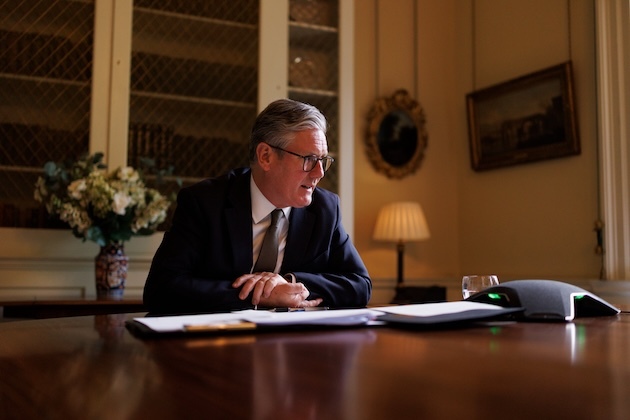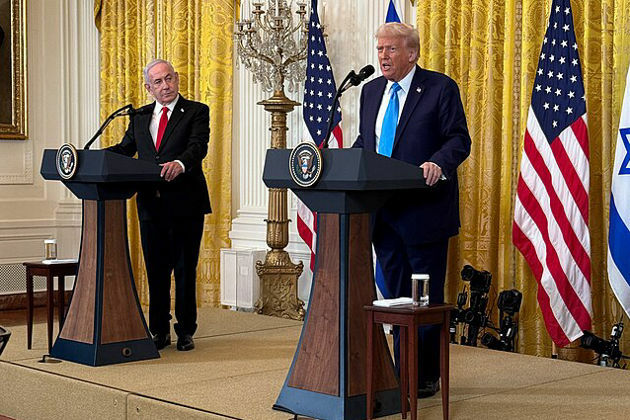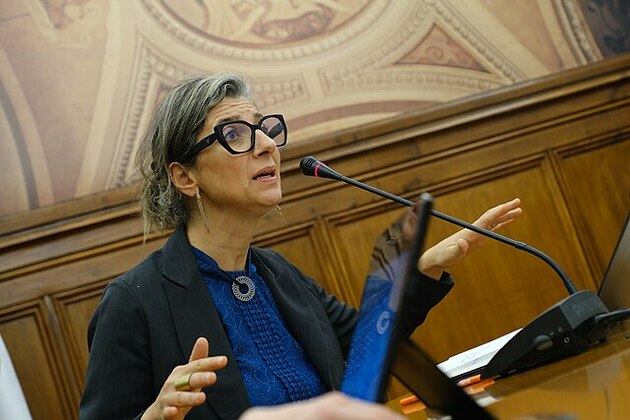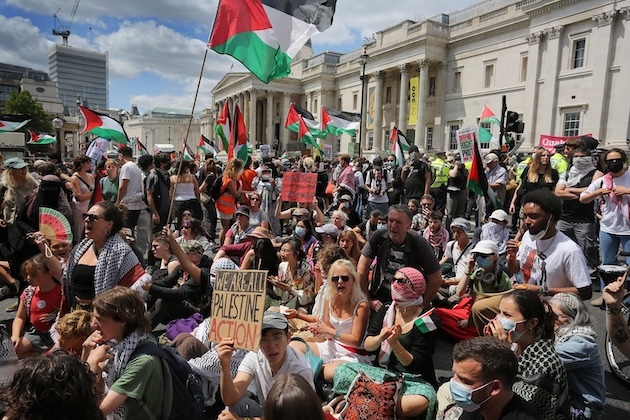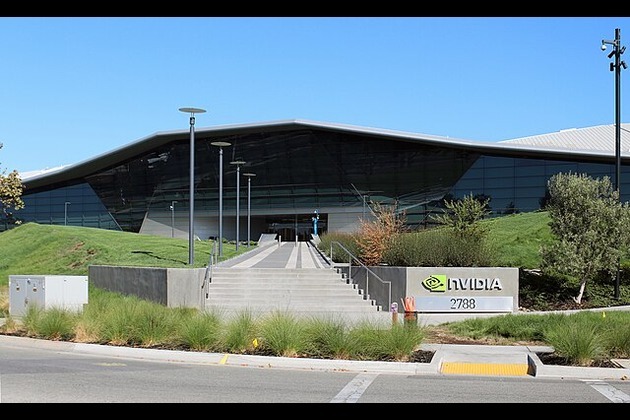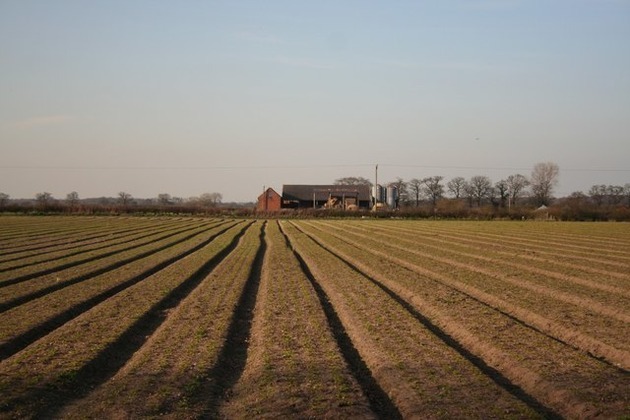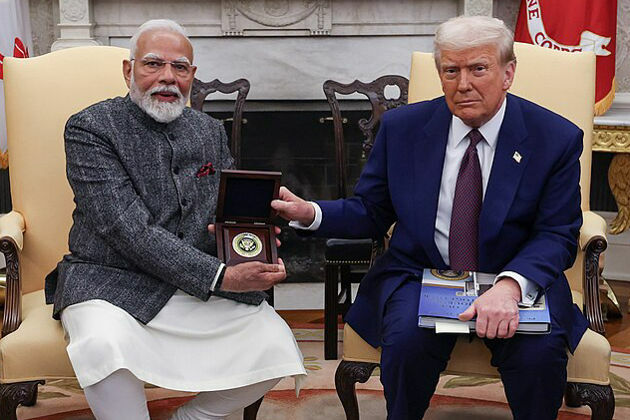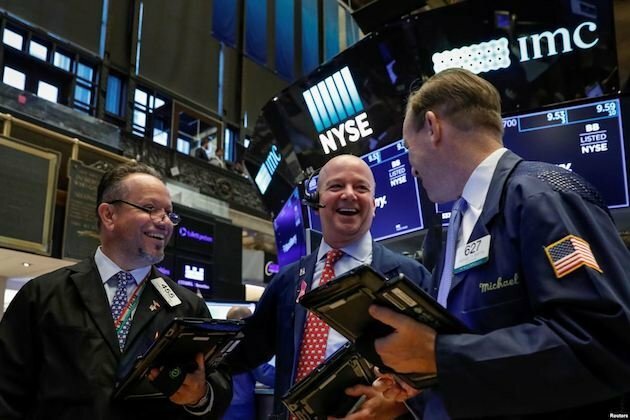African Union needs a more robust response to conflict in Cameroon
The Conversation
02 Mar 2020, 23:33 GMT+10
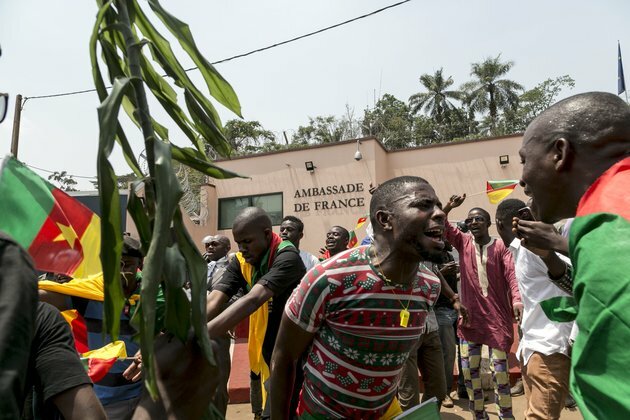
The violent conflict that erupted in the North West and South West regions of Cameroon in 2016 continues unabated. It was triggered by the government's repression of protests over the increasing influence of French in the English-speaking legal and educational institutions, and by the perceived marginalisation of the country's Anglophone regions.
Some Anglophones are demanding increased decentralisation, while others are violently struggling for an independent state called "Ambazonia".
The conflict has had devastating consequences for the Anglophone regions. According to Crisis Group around 3,000 people have died and half a million have been displaced. One in three people in the Anglophone regions are estimated to be in need of humanitarian aid.
Attempts have been made, including the involvement of other countries, to resolve the crisis. For example, Switzerland led a mediation initiative in 2019. But, for its part, the African Union, has been largely silent on the conflict.
It supported the Swiss-led initiative. It was also party to a joint statement on a tripartite commitment to supporting Cameroon's ongoing peace and reconciliation process. And the African Union head, Moussa Faki Mahamat, visited Cameroonian President Paul Biya in July 2018 and discussed the need for a national dialogue to resolve the conflict. He visited again in November 2019.
But the conflict is conspicuously absent from the African Union's Peace and Security Council, its decision-making body on the "prevention, management and resolution of conflicts". This, despite the council being mandated to "facilitate timely and efficient response to conflict and crisis situations in Africa".
The reason for this, we believe, is that a major part of the struggle in Cameroon is separatist in character. Cameroon's territorial integrity is therefore at stake. In 1963, the Organisation of African Unity, predecessor to the African Union, adopted the principle of the inviolability of borders inherited from colonisation.
Since then there has been little support for secessionist movements in Africa. Eritrea and South Sudan were able to become independent states and many African countries support Western Sahara's quest for self-determination. But a host of others - including Biafra, Katanga, Bioko, Zanzibar, Darfur, Casamance, Somaliland - have not seen much support.
Many of Cameroon's neighbours, and a few on the Peace and Security Council, face similar challenges and are, therefore, not sympathetic to this cause. Indeed the African Union chairperson, during his visit to President Biya in 2018 had reconfirmed the African Union's "unwavering commitment to the unity and territorial integrity of Cameroon".
But the African Union is vital to finding a sustainable solution to the conflict in Cameroon. It needs to overcome this difficulty, and step up its lacklustre conflict management response.
Who should be doing what
The United Nations (UN) is tasked with the responsibility of preventing and managing conflict globally. In 2017, it and African Union signed a joint "framework for enhanced partnership in peace and security". It emphasised collaboration and predictability in dealing with conflict in Africa.
Regional organisations are tasked, where appropriate, to respond to conflicts in their respective regions. There are many positives about this division of labour. But, there can also be challenges when there is a lack of capacity or unwillingness to respond to conflicts.
The UN Security Council attempted to discuss Cameroon in May 2019, but had to be content with an informal discussion after African members blocked a formal tabling of the matter.
For its part, the African Union has established a robust peace and security architecture. Besides the Peace and Security Council, it also has the
African Standby Force, for peace enforcement and peacekeeping;
Panel of the Wise, for preventative diplomacy;
Continental Early Warning System, which monitors, analyses and provides warnings of impending conflict situations in Africa; and
Africa Peace Fund, established in 1993 to be the main funder of peace and security activities.
The African Union also has a mediation unit and, more recently, established a post conflict reconstruction centre.
The African Union has used these various avenues to resolve conflicts in a number of countries. These have included the Central Africa Republic, Democratic Republic of Congo, Mali, Somalia, Gambia and Sudan.
Its track record in conflicts mixed. It did well in managing the conflict in Sudan, but not so well in Libya or South Sudan. The reasons often cited for the failures include the near absence of regional leadership, reliance on external funding, problems of harmonisation with the regional economic communities and a lack of capacity.
There is also a lack of political will on the part of the African Union's peace and security council to get involved in a conflict deemed largely as an internal matter.
The fact that an African Union head has visited the country could point to some "quiet diplomacy" taking place in the background. But, that is not enough.
Way forward
If the African Union does not become more proactive in resolving the conflict in Cameroon, it risks seeing it escalate, and possibly fuelling instability in the region.
For many years Cameroon was considered a haven of peace in Central Africa, one of the more unstable regions on the continent with conflicts in the Democratic Republic of Congo, Central African Republic, Burundi and Chad. The region does not have a single democratic state.
There are a number of different issues that need to be simultaneously addressed in the management of the conflict in Cameroon.
Firstly, the African Union and UN need to coordinate their efforts in addressing the humanitarian needs of the refugees and displaced persons. And the African Union Commission on Human and Peoples Rights must investigate the many complaints of human rights abuses in Cameroon, and to take appropriate action.
Secondly, the continental body needs to deploy its "Panel of the Wise" to determine how best to manage the conflict. Thirdly, it must also send a special envoy to the Anglophone region to implement a conflict management strategy that will lead to a sustainable peace agreement.
Fourthly, it must settle the disputes over the right to self determination through the appropriate UN structures.
Read more: Why Cameroon must move beyond dialogue to solve its Anglophone crisis
Authors: Cheryl Hendricks - Executive director, Africa Institute of South Africa, Human Sciences Research Council | Gabriel Ngah Kiven - PhD candidate in Political Studies at the Department of Politics and International Relations, University of Johannesburg 
 Share
Share
 Tweet
Tweet
 Share
Share
 Flip
Flip
 Email
Email
Watch latest videos
Subscribe and Follow
Get a daily dose of Africa Leader news through our daily email, its complimentary and keeps you fully up to date with world and business news as well.
News RELEASES
Publish news of your business, community or sports group, personnel appointments, major event and more by submitting a news release to Africa Leader.
More InformationInternational
SectionU.S. military, China, Russia in Space race
President Donald Trump's plans to build a space-based Golden Dome missile defense shield have drawn immediate criticism from China,...
Trump wins $16 million settlement from Paramount over CBS Harris edit
NEW YORK CITY, New York: Paramount has agreed to pay US$16 million to settle a lawsuit brought by U.S. President Donald Trump over...
British PM faces major party revolt over welfare reforms
LONDON, U.K.: British Prime Minister Keir Starmer won a vote in Parliament this week to move ahead with changes to the country's welfare...
White House meeting between Trump, Netanyahu on July 7
WASHINGTON, D.C.: President Donald Trump will meet Israeli Prime Minister Benjamin Netanyahu at the White House on Monday. President...
Over 60 companies named in UN report on Israel-Gaza conflict
GENEVA, Switzerland: A new United Nations report alleges that dozens of global corporations are profiting from and helping sustain...
UK lawmakers desigate protest group as terrorist organization
LONDON, UK - Lawmakers in the United Kingdom have voted overwhelmingly to proscribe the direct-action group Palestine Action as a terrorist...
Business
SectionStocks worldwide struggle to make ground Friday with Wall Street closed
LONDON UK - U.S. stock markets were closed on Friday for Independence Day. Global Forex Markets Wrap Up Friday with Greeback Comeback...
Nvidia briefly tops Apple’s record in AI-fueled stock rally
SANTA CLARA, California: Nvidia came within a whisker of making financial history on July 3, briefly surpassing Apple's all-time market...
ICE raids leave crops rotting in California, farmers fear collapse
SACRAMENTO, California: California's multibillion-dollar farms are facing a growing crisis—not from drought or pests, but from a sudden...
Trump signals progress on India Trade, criticizes Japan stance
WASHINGTON, D.C.: President Donald Trump says the United States could soon reach a trade deal with India. He believes this deal would...
Grammarly acquires Superhuman to boost AI workplace tools
SAN FRANCISCO, California: Grammarly is doubling down on AI-powered productivity tools with the acquisition of Superhuman, a sleek...
Standard and Poor's 500 and and Nasdaq Composite close at record highs
NEW YORK, New York -U.S. stock markets closed with broad gains on Thursday, led by strong performances in U.S. tech stocks, while European...



